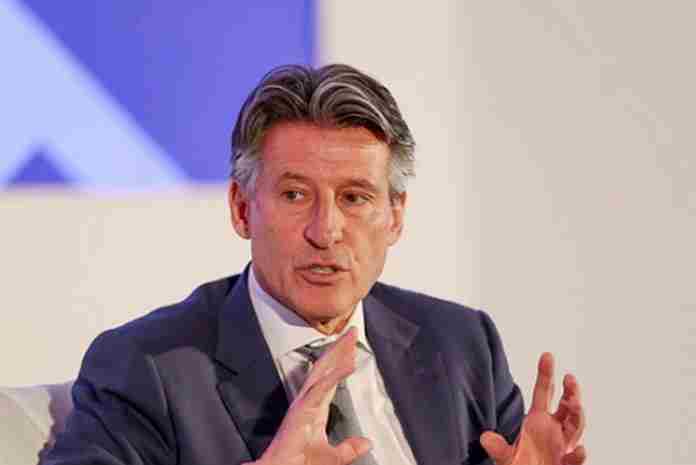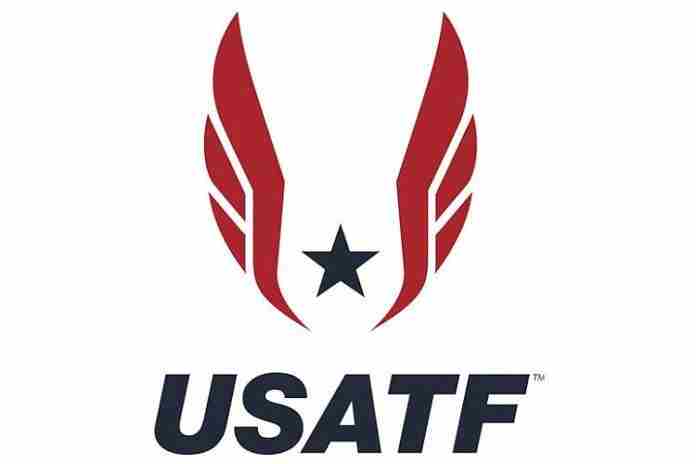World Athletics President Sebastian Coe (GBR) may be confined in his London home, but he’s hardly resting. As part of a continuing series of online interview sessions with news media from around the world, he spent 48 minutes taking questions from three American track & field writers.
His priorities?
“Much of my day is spent trying to figure out how to get the athletes back into competition again, safely and securely, and not do it in a way that offends the communities, or is in breach of any of the protocols being set down by governments, although that’s a very bearable approach, and given that I’m talking to all of you from the United States, that’s an interesting landscape for anybody that’s been so locked down – as my colleagues in Monaco have, you know, getting on for 50 days – it’s quite laissez-faire in some parts of the world.
“It’s important that we get the athletes back. We’ve had to make some adjustments, to this period of suspension to the [Olympic] qualification and that’s just to make sure we’ve got athletes coming back at roughly the right time, with the right anti-doping processes in place, and we haven’t got them coming back at various speeds, and that’s why we’ve also tried to create some structure for member federations around providing the dates for the second window of national championships, which is 8th and 9th of August. Look, in the end we may not be able to do as much as we want; we may have to re-schedule.
“But I think it’s important that we set ourselves the ambition of reinstating competition as quickly as we can. And I guess this has also not just given us the opportunity to run our own business here, and some of the innovation that we take into the new, post-pandemic world, but I think it gives us an even greater impetus to – you know, it’s Shakespeare, isn’t it – a fair stake in the flood. And if ever there has been a time for athletics to fill that void in physical inactivity that is besetting most advancing and advanced countries, the opportunity for us to get really down and dirty with some politicians here, you’ve got to get school sport back into the agenda. It’s pretty clear to me that that has been withering on the vine.”
Coe is also looking to the future, and he had a message for the U.S. track & field community:
“And moving forward, and I guess given who I’ve got on the call – and I know you’ll take this in good spirit – we’ve just got to get more one-day meetings going in the U.S. Now you are the powerhouse of track & field, your athletes consistently come back from World Championships as the leading nation, and NACAC makes a massive contribution, but the U.S. we know is the powerhouse. Too many of your athletes still walk around in relative anonymity in their hometowns, but can’t walk down the Bahnhofstrasse in Zurich without being mobbed. (emphasis added)
“So we do, you know, need to get more one-day meetings going in the States, because it’s really important. We had 2014 Eugene [World] Junior Championships, 2016 [World Indoors] in Portland, we have ‘21, now ‘22 Eugene, which will be a great World Championships. We’ve got ‘28 [Olympics] in L.A. and we’ve got to use this as a stepping stone that can only happen if we get a greater critical mass of one-day meets going.
“You know, we just don’t want this to be a singular flow of U.S. athletes in May into Europe, important as that is. It has to be the other way around. You do, you know, have to have European athletes – top European athletes – also competing in the U.S. and we do have to give more opportunities for U.S. athletes to be earning their crust from shining sea-to-shining sea.” (emphasis added)
That comment led to a later question about the work of the new World Athletics Calendar Commission – which includes USATF Chief of High Performance Duffy Mahoney – and how the seasonal schedule needs to be revised into something that promotes the sport instead of leaving potential fans confused.
Coe has a lot to say about this:
“The guiding principle here for me is – I have said for a long time and we’ve all individually, collectively had these discussions; it’s one of those hardy perennials that’s always there in the coffee shops or the bars of our major championships – that [for] far too many, including the athletes, yourselves, me sometimes and our fans particularly, it’s very difficult to understand the rhythm and pace and nature of the season. You know it does seem to hop around – athlete welfare is important as you know – [but] you’ve got athletes one week in the Middle East, next week in China, flying over to Eugene, 8-10 time zones away.
“The overwhelming aim of this is to try and create more understanding in the season, and look, Diamond League was already a good example of some of the work we’ve been doing around that. You know, it wasn’t broken, but it just could have been so much better. And making sure that, for instance, we don’t have three Diamond League events all in a six or seven-day span. We’re trying to get them to be roughly between Thursday and Sunday and spaced a week apart.
“The windows we have created around our national championships are important because I spent far too much time on the phone to sort out warring parties that have suddenly got very angry because a member federation, without any prior notice, has moved a national championship right smack dab in the middle of a Diamond League period.
“We will want to create a calendar that also has some sanctions here, so that member federations and our one-day meetings which are an important part of our ecosystem, and then to make sure that we have other windows – and it’s not easy; it’s a sport that is multi-faceted, it’s not just one sport. We have the road, we have cross country, indoors, we have outdoors, we have juniors, we have youth competitions (and not a championship any more) and we have a lot of things to try and fit in.
“I think the work that we’ve done and we’re doing at the moment to try and at least create a rhythm and a pace in the season, so that when people sit and absorb athletics, they at least know what a competition means.”
He also touched on the World Athletics World Rankings, a program just in its infancy, but which Coe believes can have some important results for fan development:
“I think also the world-ranking lists will help here. I’ve always seen that as a really important marketing tool. We’re one of the few sports where you genuinely don’t know at any one point who is the no. 1. You never that doubt in tennis or in golf, and I want to have that marketing tool where you see a list of athletes on the starting line, with also a caption underneath [on TV] saying currently sitting third in the world, on the ranking list, and people need to know what it means when they win or they lose. Not every tennis player goes to Wimbledon thinking they are going to win, but you at least know that they go ranked no. 1 through to, you know, 200.
“Again, it’s allowing a bit more understanding, particularly for our fans.”
Coe, just re-elected for a second term as World Athletics President, also comments on the unique opportunity to expose the sport with major meets each year from 2021-25:
“We’re sort of lamenting the fact that we had to fit all sorts of things into odd shapes, and with new jigsaw. But actually the one thing I do take comfort from is, if you look at 2020, it’s in ruins for all intents and purposes – a write-off – we know that.
“But on the basis that we do get the Games up and away in ‘21, we then have the World Championships that will be center stage ‘22 – but also the Commonwealth Games and the European Championships that are great shop windows for our sport – but equally, if you then go into 2023, we have a World Championships in Budapest, we’re then center-stage again with athletics, because athletics is the no. 1 sport by some distance in an Olympic Games [in 2024] and then in ‘25 we’re back – we don’t have the venue yet – but we are back into a World Championship year. So, we do have the opportunity for four or five seasons where athletics sits center stage in a very virtuous part of the year for people to watch it. We need to build on that, we need to absolutely make sure we capitalize on every moment.
“People say, ‘oh well, you know, you’ve got three championships in one year.’ It wasn’t that long ago that everybody was lamenting that we don’t have enough athletics on television. Well, actually 2022 is a great opportunity. We’re going to have the best athletes in Eugene, we’re going to have a big chunk of those athletes in those Commonwealth countries performing again quite soon afterwards, and then again the European Championships, which – look at Berlin – were a massive shop window for the sport. So I am very comforted by the fact that that’s going to happen.”
Opportunity, yes, but with the outcome yet to be determined. Asked about the possibility of having a third World Championships added to the schedule – placing one in each non-Olympic year, Coe said he was open to it … sort of:
“I don’t think so at the moment. Let’s be really liberal about this and think about all these things now. This is the opportunity to do it.
“I think that’s one step at this moment too far, and organizing championships is – with all due respect – it’s not as easy as in some sports, where you have one arena, a ball and a couple of bats. It’s actually an inordinate piece of complexity.
“We would have to look at that in a different way, but let’s look at it. I don’t have any tightly prescripted views at the moment about what we’re able to sort of free-range over.”
Living in London, Coe is – of course – staying at home like everyone else. But the double Olympic champion does try to maintain some sort of training regimen:
“I do try to work out, and I do that early in the morning, because my days start really early. And you understand why, because trying to keep in touch with all of our major stakeholders, whether it’s our Area Presidents; I’ve got a Council where I’ve got people in Northern Mariana Islands right the way through to Manaus [Brazil] – it’s not that easy – so sometimes it can be a bit anti-social. I try not to just build it around my own comforts. I started my first conversation this morning was at 6:45 [London time] and at about 8 o’clock tonight, I should be able to finish and with a little bit of luck, I might be able to get onto a treadmill.”
Following 48 minutes taking questions, he then left to go to another live-streamed event where he was raising money for charity by doing two hours and six minutes on a treadmill!

























